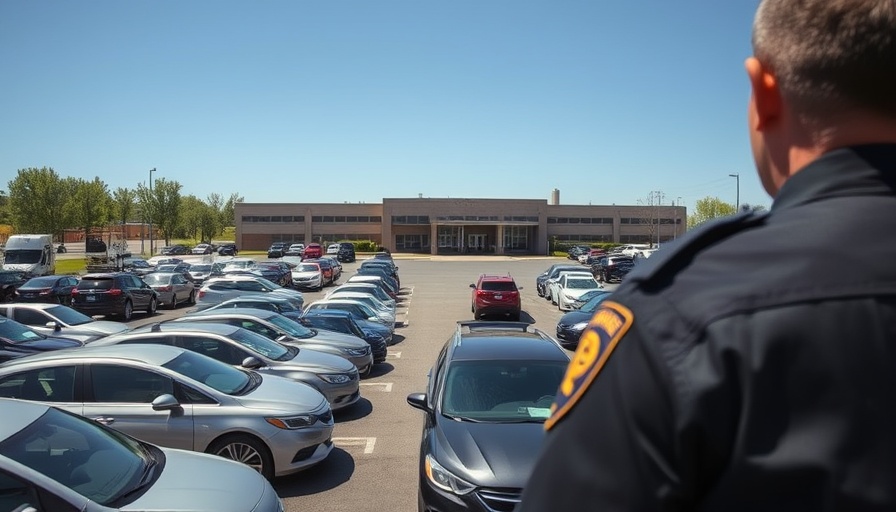
Understanding the 'Cornhusker Clink': A New Chapter in Immigration Enforcement
The recent announcement from the Department of Homeland Security (DHS) plans to establish a new detention facility in McCook, Nebraska, dubbed the 'Cornhusker Clink,' as a strategic move under President Trump's immigration enforcement policy. This initiative significantly amplifies ongoing efforts to tighten border control and immigration regulations amidst a polarized national debate on these issues.
The Context Behind Increased Detention Centers
President Trump's administration has long argued that a robust border security approach is essential for national safety and integrity. With the introduction of the Cornhusker Clink, Secretary of DHS Noem emphasized the importance of self-deportation for illegal immigrants, framing the establishment of detention centers as a crucial step to disincentivize illegal entry into the U.S. territory.
Over recent years, the U.S. border policies have shifted dramatically, aligning with a tough-on-immigration stance. Critics argue that such facilities can lead to humanitarian crises, while supporters believe they are necessary to safeguard American jobs and resources from undocumented migrants.
How the New Facility Could Impact Local Communities
The Cornhusker Clink isn't just a stopgap for federal immigration policies; it's poised to influence Nebraska and surrounding areas significantly. As the facility begins operations, local economies will likely experience both opportunity and turmoil. The introduction of a detention center may create jobs but also potentially strain community resources as local governmental services expand to accommodate the influx of detainees and associated personnel.
Furthermore, the community dynamics could shift as residents engage in a discourse about immigration, human rights, and the economic implications of hosting such facilities. Local advocacy groups may emerge to offer support to those detained, stimulating a mixture of solidarity and protest.
Public Response and Broader Implications
The announcement has sparked a wave of reactions from various stakeholders, including political commentators, human rights activists, and local residents. On one hand, Trump supporters argue that decisive actions against illegal immigration will contribute to national stability. Conversely, opponents see this as an infringement on human rights, citing the potential for abuse and neglect within detention facilities.
It’s essential to consider the human emotional aspect intertwined with immigration policies. Families separated due to detention yield stories of confusion and distress, feeding into public opposition against such establishments.
Future Predictions: The Road Ahead
Looking forward, if the DHS moves ahead with the Cornhusker Clink, it could set a precedent for similar facilities nationwide. This move may encourage states to align with federal intentions, promoting further expansions of the immigration enforcement framework.
As America continues to struggle with immigration issues, the success or failure of such facilities will likely shape policies in the years to come. Continuous dialogues between the government and citizens are crucial for reconciling national security interests with ethical treatment of those seeking asylum and a better life.
What You Can Do: Engaging in the Discussion
Staying informed through reading and engaging with the news is vital in these times of change. Connecting with local organizations that advocate for immigrant rights or participate in community conversations about these shifts can help you understand and address the nuances involved in the debate over immigration policy.
With the opening of the Cornhusker Clink on the horizon, the need for informed dialogue and actionable engagement has never been more critical. Stay tuned with the latest breaking news to comprehend the unfolding developments of the immigration landscape in America.
 Add Element
Add Element  Add Row
Add Row 



Write A Comment